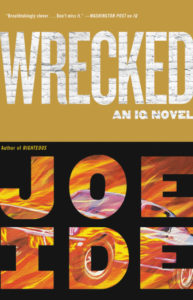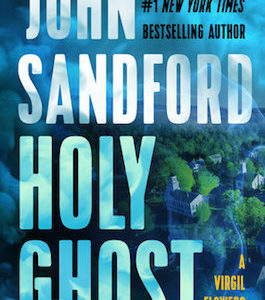To the extent there are hemispheres in the crime and mystery community, Sherlock Holmes and Los Angeles Noir may be said to be on opposite poles. You had the puzzle-solving gentleman genius of Baker Street on one end of the literature (along with his legion of fans) and on the other were the gritty street-smart tales of crime in the City of Angels. Or at least that’s how it used to be, before Joe Ide. In October 2016, Ide’s groundbreaking series was launched with IQ, a novel about an ingenious, eccentric kid, Isaiah Quintabe, living in East Long Beach and earning a reputation as a neighborhood sleuth for whom no problem was too big and no payment too modest. The following year, IQ and his street-wise partner Dodson were back with a new adventure that spanned from L.A. to the Vegas strip and back again, and with that release, a new mystery phenomenon was solidified. Now each October readers are looking forward to the latest IQ story, and 2018 doesn’t disappoint. Ide is back with Wrecked, bringing new complexity to his sleuth with a romantic entanglement and a new mystery involving a missing mother and a gang of former military police gone rogue. It’s a classic L.A. crime story with an undercurrent of the consulting detective. That is, it’s all Joe Ide.
We caught up with him to chat about Los Angeles, the persistence of Sherlock culture, and the author’s own quick rise in the mystery world.
CrimeReads: Los Angeles is the quintessential crime fiction city, but relatively little has been written about East Long Beach, where IQ lives and runs his business. He’s very much enmeshed in that neighborhood and I was wondering, what is it about that part of the city that you wanted to explore and capture in these books?
Joe Ide: It’s less about a specific part of the city and more about the hood in general. How it feels to be there. My old neighborhood in South Central is almost solidly Latino now. I moved the setting to East Long Beach because there is more diversity there, and a wider array of characters for me to draw from.
What were some of the LA novels that you looked to for inspiration? Do you consider yourself to be a part of that literary tradition?
The Big Sleep, White Oleander, LA Confidential, Devil in the Blue Dress, The Black Ice, Less Than Zero and many many others. New books as well. Ivy Pochoda’s Wonder Valley is destined to be a classic. As for myself, LA is the environ I know best and staying within my wheelhouse seemed like a good idea. Others may think I’m part of the tradition but it was never my intention. I write what occurs to me.
We’re seeing more and more Sherlockian characters translated into new time periods, new places, new cultural settings. What is it about that archetype that makes it so timeless?
I think the Sherlock character endures because we envy him. We’d like the ability to solve our personal dilemmas and overcome our nemeses armed with only our brains. We’d love to be the smartest guy/girl in the room and see what others don’t. To always be on top of the situation. To have that edge.
There’s a madcap element to all your IQ books—a lot of action, a lot of players, and set pieces that bring them into collision. You never lose the thread of the seriousness of the crimes or the mysteries, but there’s a humor and an energy to these books that makes them a lot of fun. How do you balance that humor and the madcap action with the darker elements of the story?
In set pieces, I think about the action first; keeping it credible and within the realm of possibility. The darker edge comes from the characters’ intentions and what they’ll do to achieve them. As for stunts and derring-do, there’s nothing we haven’t seen before. What provides the energy is why the characters are willing to risk their lives; to take such extreme actions. We are with them, whether they’re good or bad. The humor comes from adding in funny characters and forcing them into situations where they have no business being.
A big part of the newest book, Wrecked, is that we’re watching the professionalization of this PI operation IQ and Dodson are running. They’re setting up a real business, which is not something IQ is particularly comfortable or adept at doing. He’d rather stay home and poke around on some research or some investigation, help the occasional person who needs help, and have it end there. That seems like a pretty good analogy for most writers. Your writing career is taking off now. There are all kinds of new obligations attached. Do you sympathize with IQ as this business grows around him?
I have more sympathy for myself. I am, by nature, a loner. I watch and listen; the writer’s job. The public events are fun, I enjoy them, but I’m most comfortable sealed up in my study, with nothing to deal with except what’s in my head. The whole “taking off” thing seems like it’s happening to someone else. My experience with a book is strictly process; namely sitting at my computer in my pajamas, drinking coffee, eating tacos and talking to my dog. When there’s a nice review, I’m grateful, but it seems discrepant—disconnected with what I’ve been doing; disconnected from the taco juice I’m cleaning off my keyboard.
—Author photo credit: Craig Takahashi


















